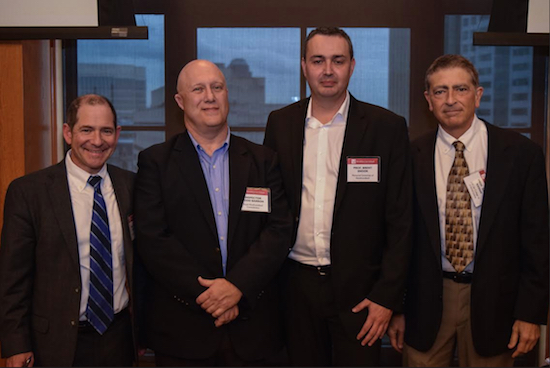Brooklyn Law School CLE seminar examines false confessions, explores a better way

Brooklyn Law School brought in a pair of psychology professors and a member of the Royal Newfoundland Constabulary for a Continuing Legal Education (CLE) ethics roundtable on police interrogations in Downtown Brooklyn on Thursday.
“This program is part of a series that the center has been sponsoring that brings the worlds of legal ethics, psychology and linguistics together,” said Prof. Lawrence Solan. “The working title of the series is, ‘Can the Legal System Do Justice Even When it Tries?’ Tonight is obviously the capstone of this project.”
This part of the series was titled “Getting a Confession Versus Getting at the Truth: An Ethical Alternative to Deceptive Police Interrogation Tactics.” It was moderated by Glenn Garber, founder and director of the Exoneration Initiative, and the panelists included psychology professors Saul Kassin from John Jay College and Brent Snook from Memorial University of Newfoundland. They were joined by inspector Todd Barron of the Royal Newfoundland Constabulary.

Brooklyn Boro
View MoreNew York City’s most populous borough, Brooklyn, is home to nearly 2.6 million residents. If Brooklyn were an independent city it would be the fourth largest city in the United States. While Brooklyn has become the epitome of ‘cool and hip’ in recent years, for those that were born here, raised families here and improved communities over the years, Brooklyn has never been ‘uncool’.